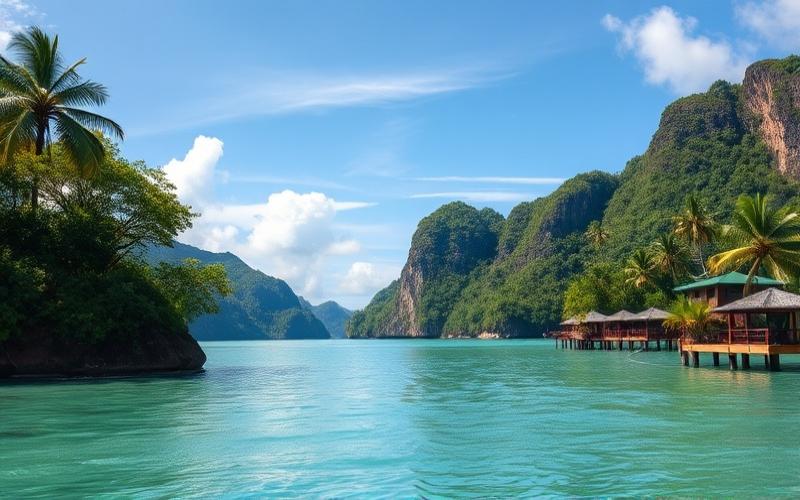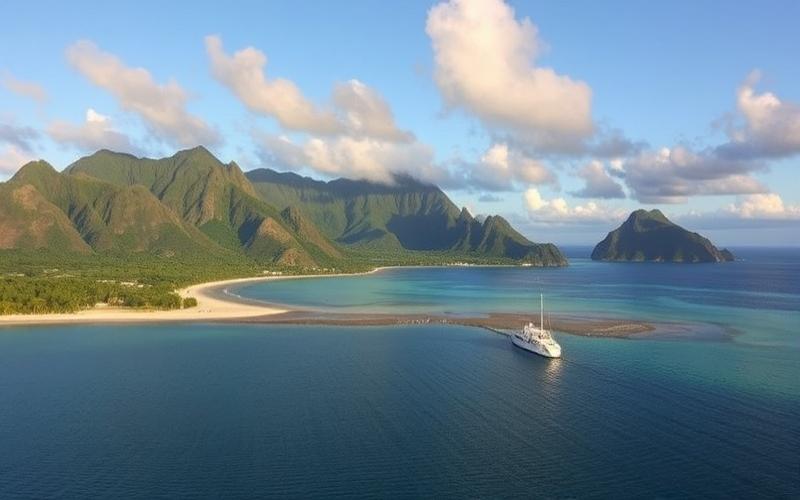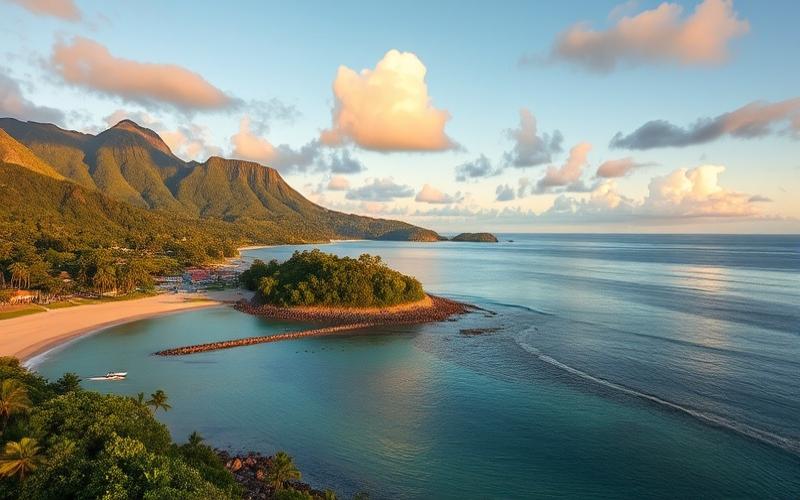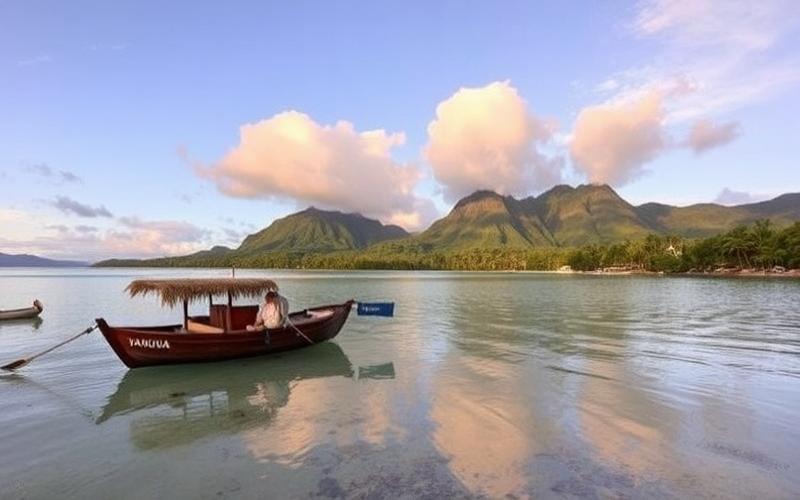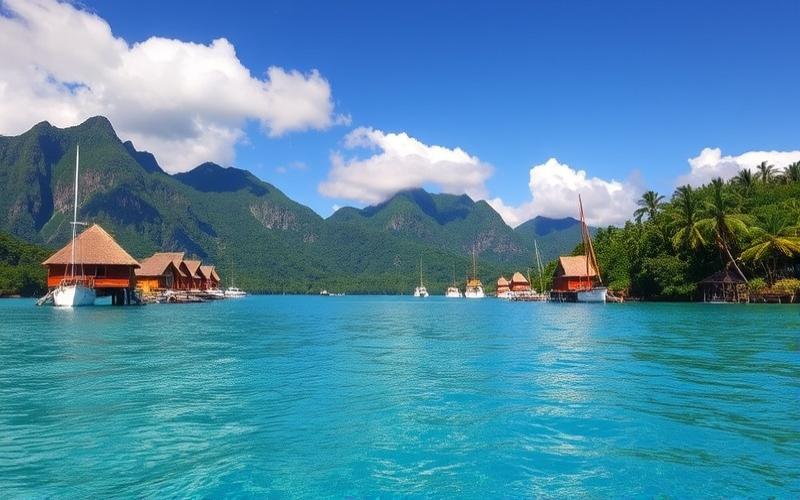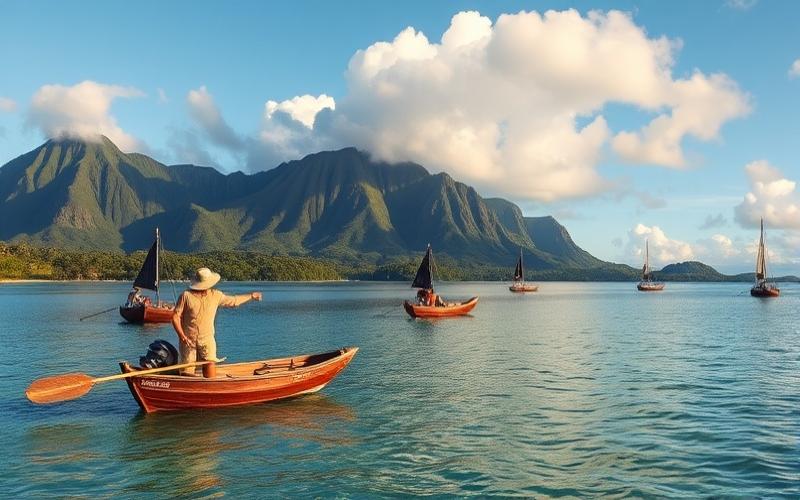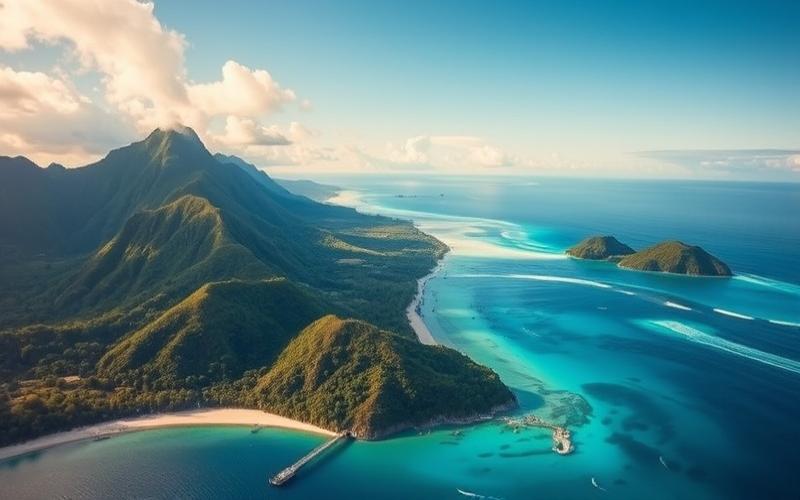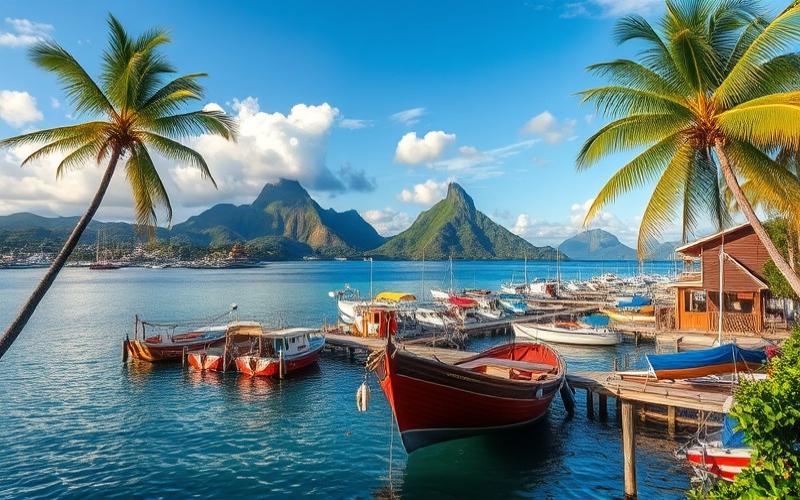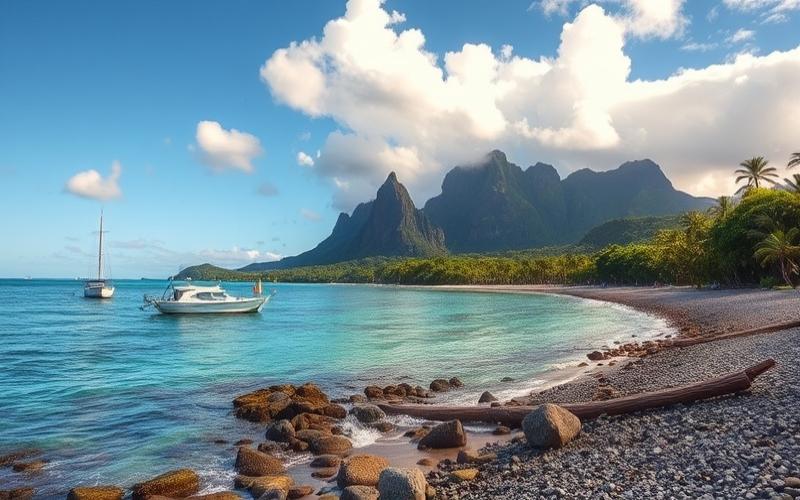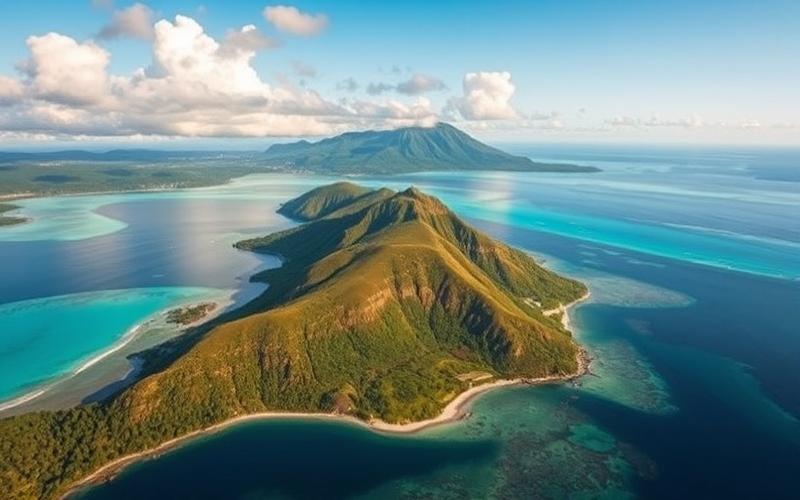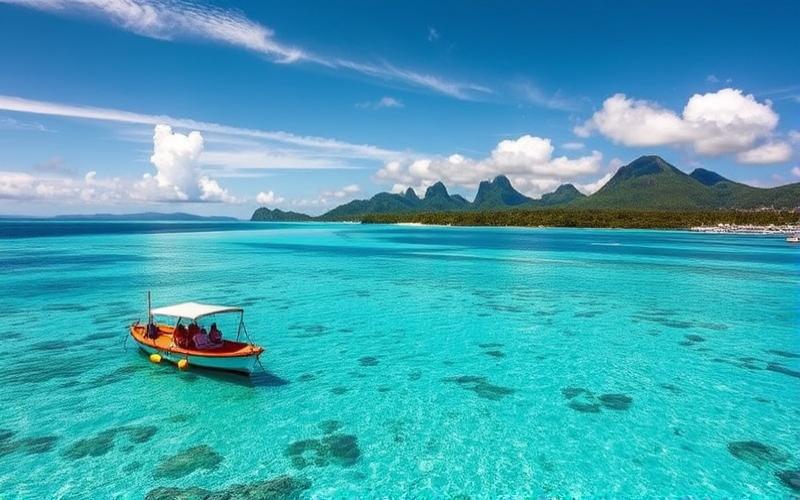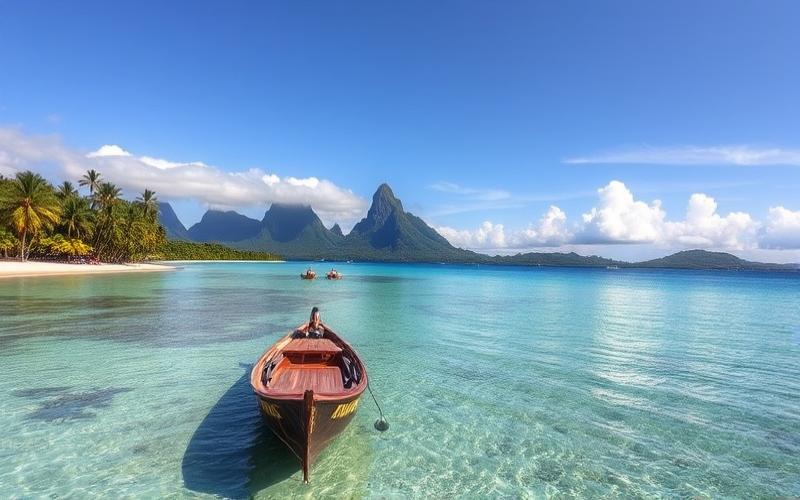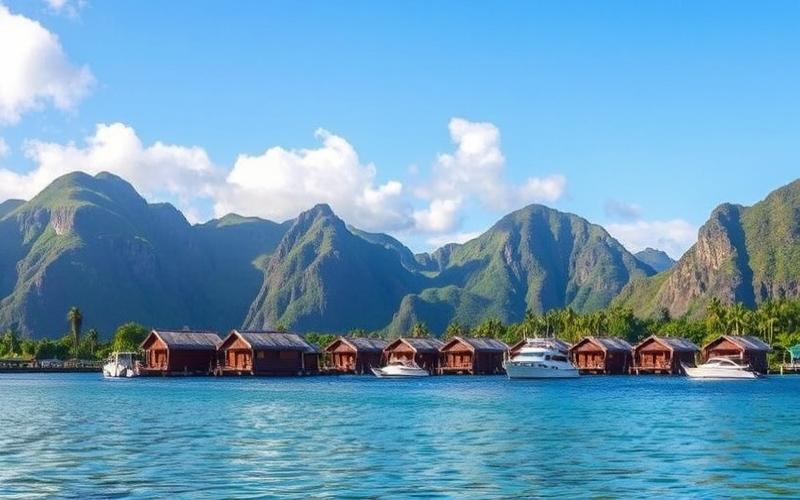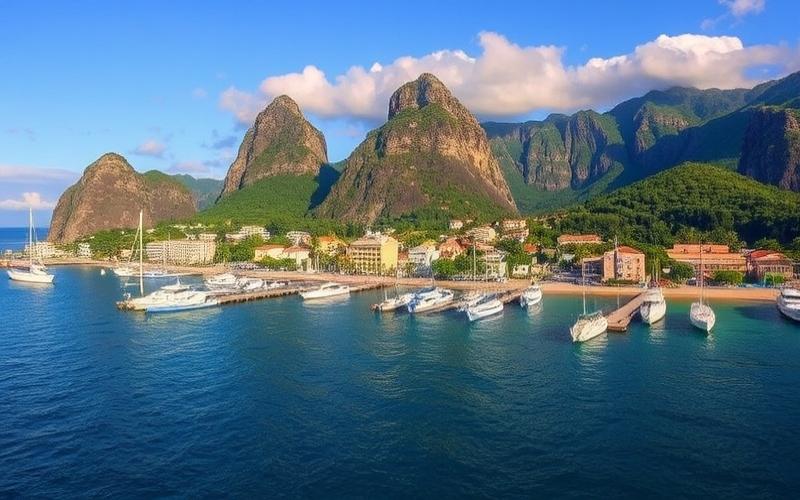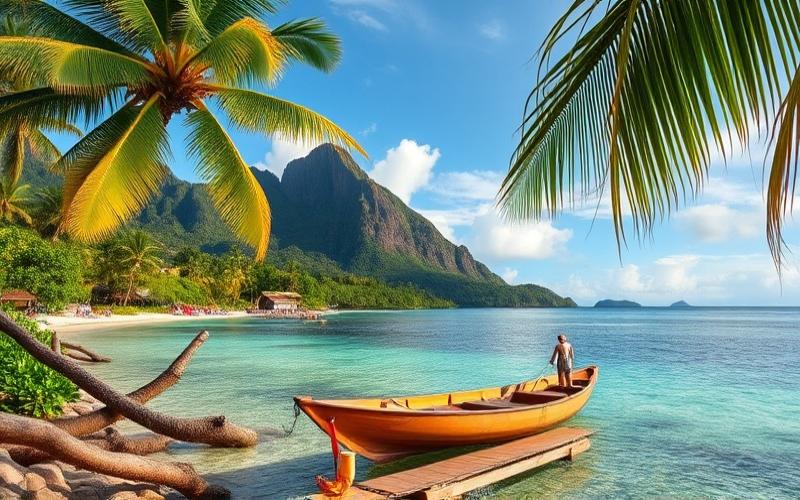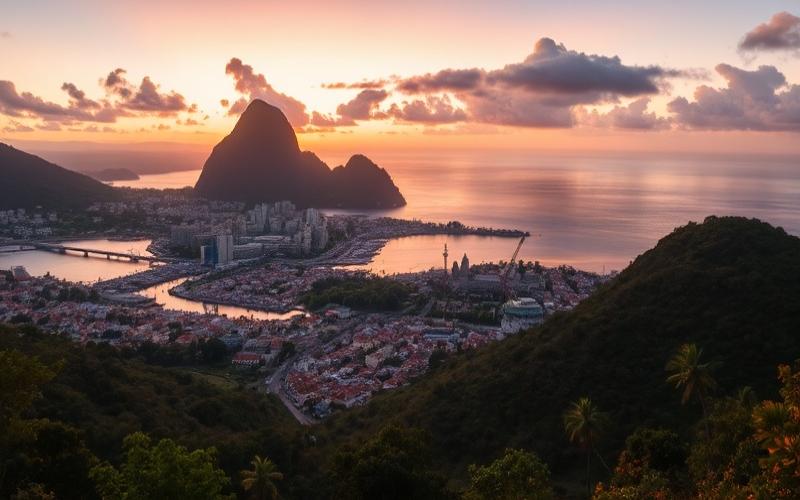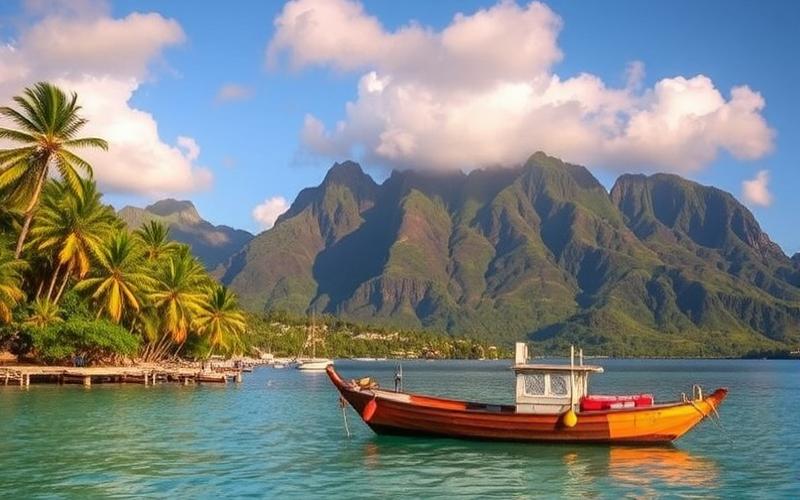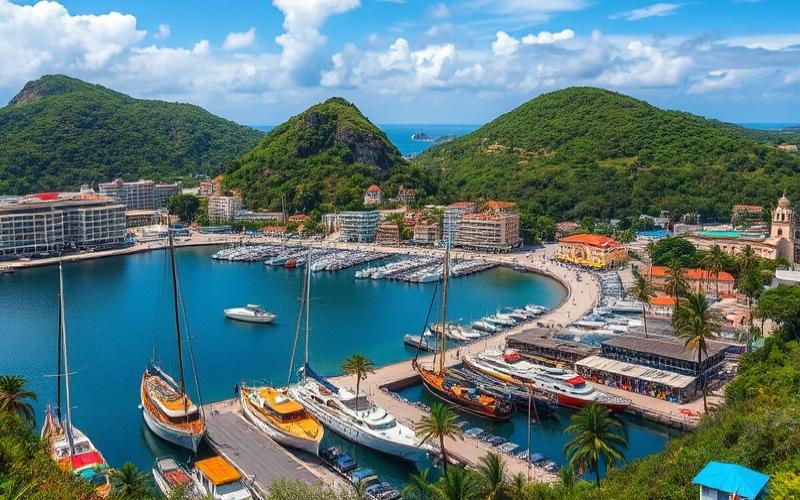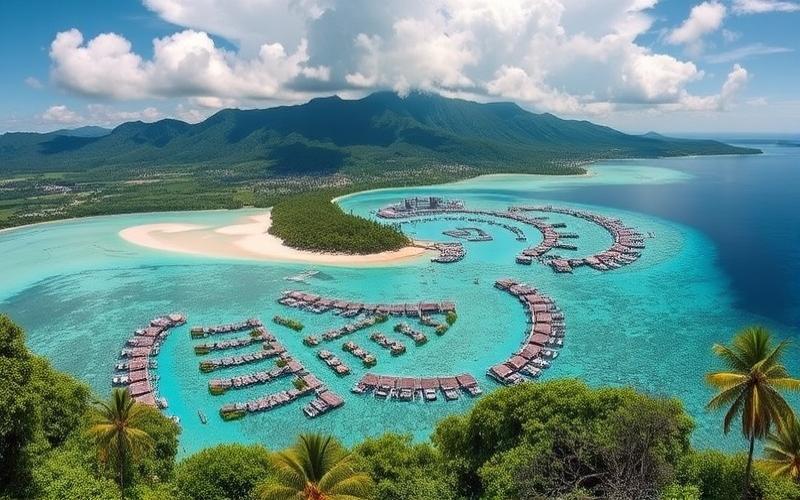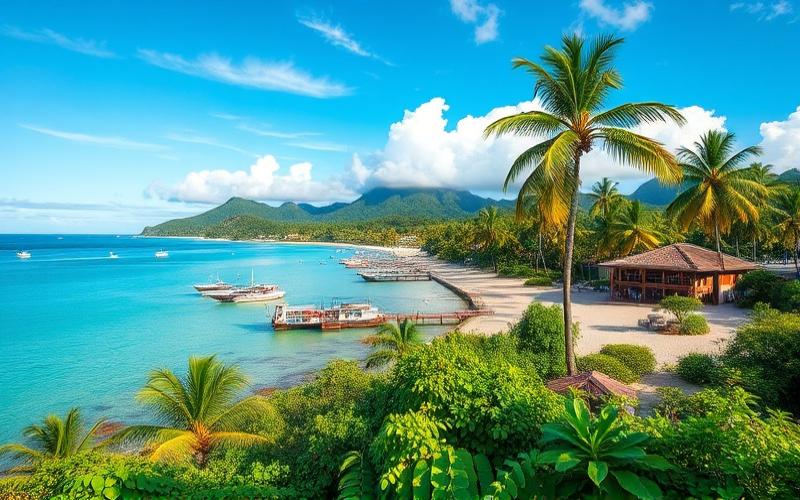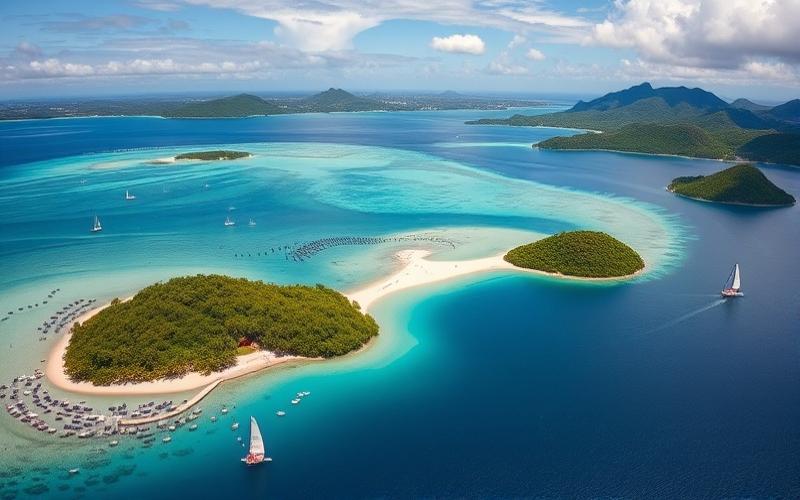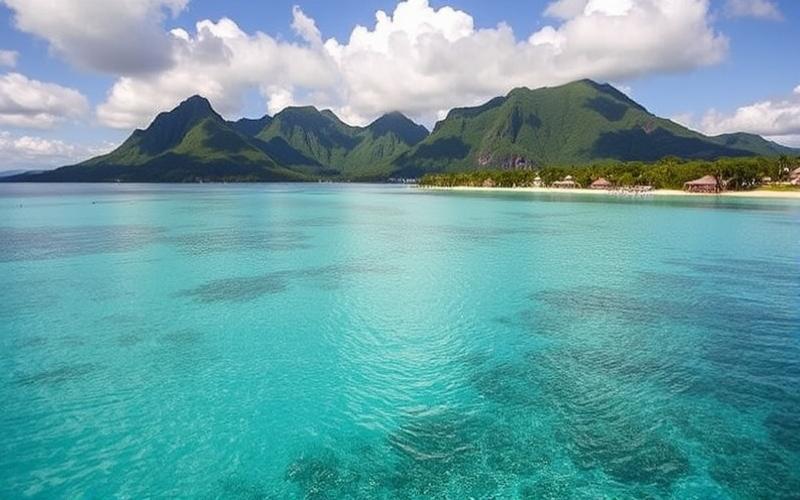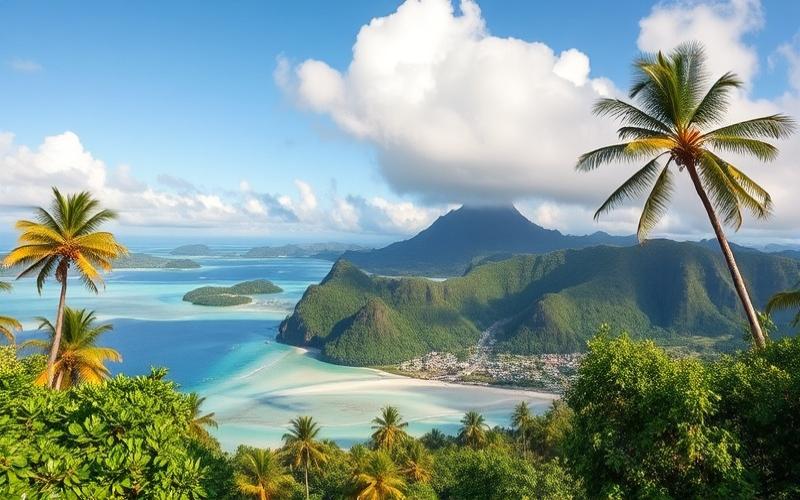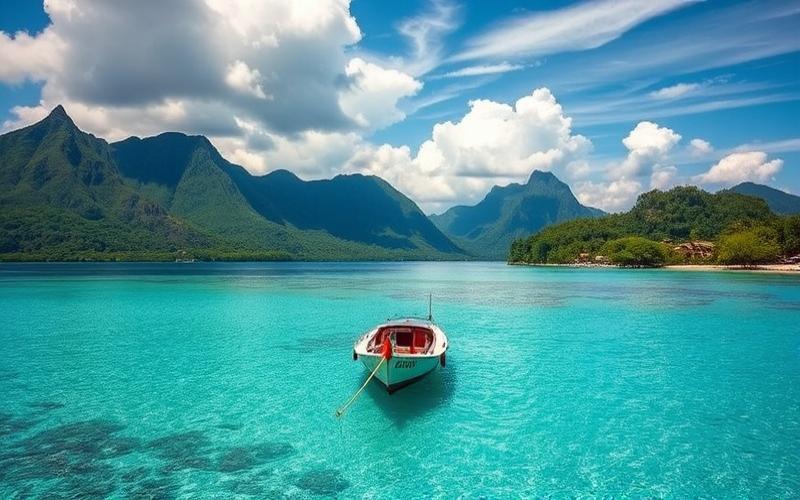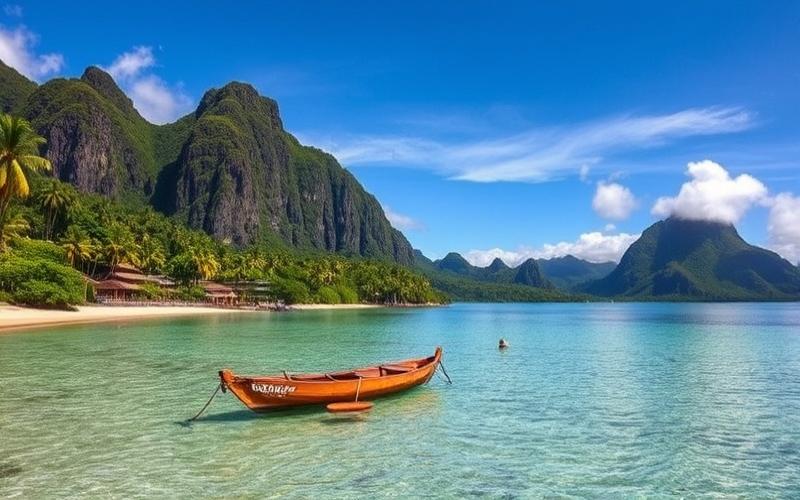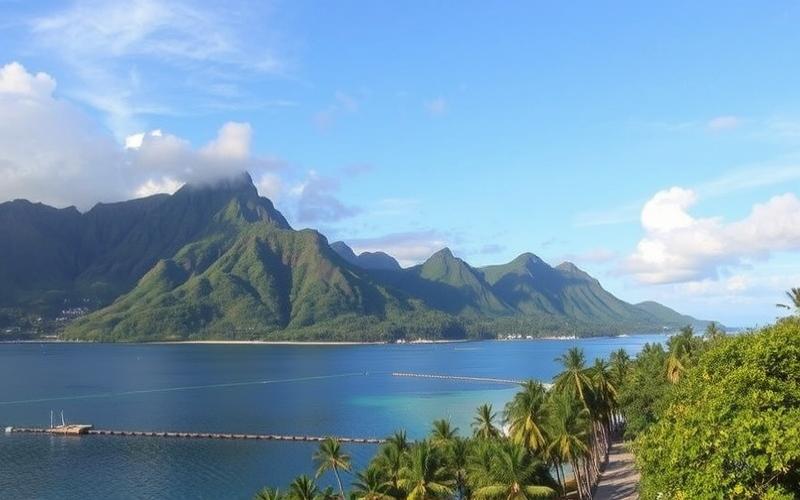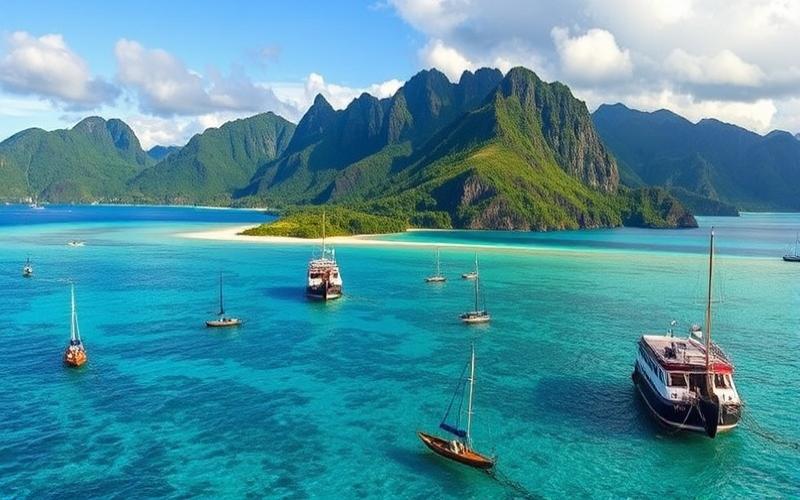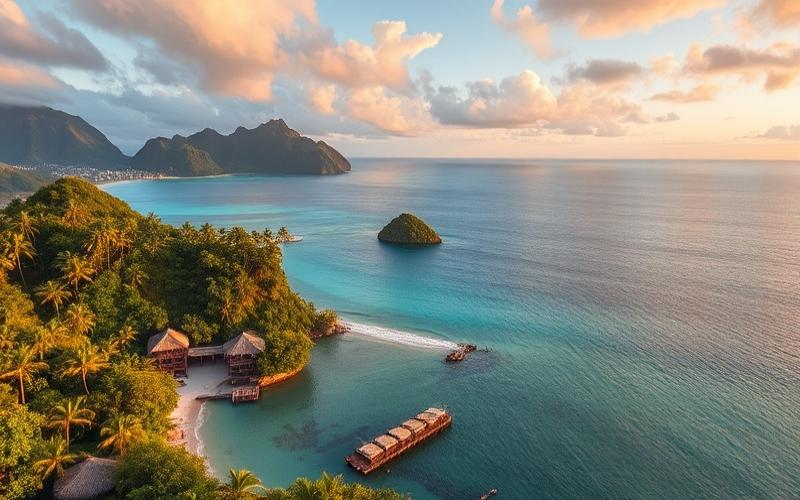
 Published on and written by Cyril Jarnias
Published on and written by Cyril Jarnias
Located in the heart of the Pacific Ocean, Vanuatu is attracting increasing attention, not only for its picturesque landscapes but also for its booming real estate market. In this context, an emerging phenomenon is beginning to gain ground: “dark stores”, these distribution warehouses situated in strategic urban neighborhoods designed to meet the growing demand for quick delivery services.
While some see these facilities as a necessary innovation for the digital economy, others worry about the potential impacts on the urban fabric and local commerce. This article explores how this phenomenon is taking root in this island paradise, revealing the opportunities and challenges it creates for real estate sector players and Vanuatu residents.
“Dark Stores”: Revolutionizing Urban Real Estate in Vanuatu
The emergence of “dark stores” in Vanuatu is a recent manifestation of the transformation of urban commerce, driven by the meteoric rise of online shopping and evolving consumer expectations regarding speed and convenience. These commercial spaces, closed to the public, are exclusively dedicated to storing and preparing orders placed online.
Factors Driving the Emergence of Dark Stores in Vanuatu:
- Acceleration of local e-commerce following recent health restrictions and increased internet usage.
- Growing expectation for quick deliveries (quick commerce model) in urban centers like Port-Vila or Luganville.
- Sustained urbanization leading to demographic density that favors decentralized logistical development.
- High operating costs for traditional stores encouraging the conversion of some unprofitable commercial premises into modern logistics hubs.
Transformation of Urban Real Estate:
Dark stores are profoundly altering the urban landscape:
- Repurposing of former stores, warehouses, or vacant spaces in central neighborhoods for strictly logistical use.
- Potential decrease in the number of spaces open to the public in city centers but land optimization through rapid stock rotation and intensive 24/7 use.
- Possible increase in rental value for certain types of properties suited to this model (excellent accessibility, parking).
| Real Estate Transformation | Immediate Impact | Long-Term Effect |
|---|---|---|
| Commercial Recycling | Fewer active storefronts | Increased economic dynamism |
| Pressure on Central Land | Rise in specific rents | Accelerated urban mutation |
| Flexible Use (pop-up hubs) | Rapid adaptation | Emergence of new mixed uses |
Economic and Social Advantages:
Economic:
- Reduction in operational costs for local e-commerce players
- Generation of specialized jobs in urban logistics
- Optimization of the last mile, potential reduction in delays
Social:
- Perceived improvement in customer service due to speed
- Increased accessibility for isolated or less mobile populations
Reported Disadvantages:
For Residents:
- Potential feeling of local commercial impoverishment with the gradual disappearance of visible traditional stores
- Occasional increase in utility traffic (frequent deliveries)
For Traditional Stores:
- Direct competition difficult to sustain without digital adaptation
- Potential loss of pedestrian appeal in certain shopping streets
For Local Authorities:
- Urgent need to adapt the urban regulatory framework to govern these new real estate uses
- Complex management between dynamic economic needs and social/urban preservation
International Comparisons:
In several developed countries where this model is mature (France, United Kingdom), we observe:
| Country | Implementation Level | Major Reactions |
|---|---|---|
| France | Very High | Increased regulation; public debates |
| United Kingdom | Advanced | Regulated integration; gradual adaptation |
| Australia/NZ | Growing | Incentive/logistical policies |
Vanuatu is thus following a similar pattern but with a time lag. Major cities are seeing these structures emerge primarily where commercial land still allows for this rapid transformation.
Future Forecasts for Vanuatu:
The progression is expected to intensify under the combined effect:
- Of the continuous expansion of national e-commerce,
- Of the expected strengthening of digital infrastructure,
- And potentially through proactive adaptation to the urban challenges raised elsewhere.
In the long run, if this trend is confirmed without regulatory adjustments or comprehensive reflection on the traditional commercial fabric, it could durably reshape not only urban real estate but also local commercial life.
Good to Know:
In Vanuatu, the emergence of “dark stores” marks a new era for urban real estate, disrupting the traditional commercial dynamic. These spaces dedicated to warehousing and preparing online orders are beginning to appear in major cities, driven by the growth of e-commerce. They are transforming the use of real estate assets by converting commercial premises once open to the public into closed logistics centers. This trend offers economic benefits, such as job creation and delivery optimization, but also raises concerns about the loss of neighborhood stores and the impact on the social cohesion of neighborhoods. While in countries like France these facilities are already well established, Vanuatu is cautiously considering their expansion, carefully assessing the balance between innovation and preservation of the local economic fabric.
Logistics Real Estate Serving Quick Delivery
The rise of dark stores, or urban warehouses dedicated exclusively to the rapid processing of online orders, is transforming the logistics supply chain in Vanuatu. These facilities, located in close proximity to urban and tourist centers like Port Vila, enable meeting the growing demand for fast and flexible deliveries. Dark stores optimize stock management and significantly reduce last-mile delivery times.
Examples of Local Adaptation:
- Several food distribution companies have converted part of their traditional commercial spaces into mini urban warehouses to speed up order preparation and dispatch.
- Operators specializing in tourist e-commerce have installed logistics hubs near the waterfront to guarantee express delivery to visitors during their stay.
- Facing challenges posed by recent natural disasters, some local companies have pooled their logistical resources in these new shared warehouses to ensure service continuity even during major disruptions.
Impact on the Local Real Estate Market:
| Opportunities | Challenges |
|---|---|
| Creation of a new class of real estate assets (urban warehouses) sought by investors | Increased pressure on already scarce urban land |
| Rapid appreciation of industrial zones near the city center | Problems of landscape and architectural integration |
| Diversification of the real estate portfolio with potentially higher rental yields than traditional stores | Risks related to the rapid evolution of technological needs (increased digitalization) |
Testimonials/Case Studies:
“After converting our former central supermarket into a logistics hub dedicated to food e-commerce, we have reduced our average delivery times in Port Vila to less than two hours. This has been decisive for retaining our local clientele but also for capturing a demanding tourist clientele,” explains a local logistics manager.
Specific Challenges Encountered:
- Environmental Impact: multiplication of light utility traffic in city centers; need to invest in electric or hybrid fleets to limit nuisances.
- Urban Integration: sometimes difficult transformation of the landscape with the massive implantation of technical spaces; growing need for dialogue with local communities so that these infrastructures integrate harmoniously into the existing fabric.
- Resilience to Natural Disasters: reinforced design (anti-seismic/cyclonic standards), temporary pooling after a disaster.
Influence on the Local Economy:
Modern logistics infrastructure directly stimulates several economic sectors:
- Acceleration of local digital commerce
- Increased professionalization in transport/storage
- Direct/indirect creation of skilled jobs
They also promote post-disaster economic resilience thanks to their flexible capacity to quickly absorb a sudden peak or temporarily redirect trade flows.
Forecasts for the Future:
With the expected continuation of incentive policies and the continuous growth forecast for 2025–2031 despite some recent cyclical slowdowns linked to major natural disasters, the real estate sector related to urban logistics should continue its ascent. Investments will focus particularly on:
- Increased automation (robotics/intelligent logistics)
- Vertical densification where horizontal land remains limited
- Sustainable development via low-energy buildings
Logistics real estate today represents a major strategic lever not only to support the digital boom but also to strengthen economic resilience in the face of natural hazards that regularly mark Vanuatu.
Good to Know:
In Vanuatu, the proliferation of dark stores, or flagship stores, plays a crucial role in optimizing the supply chain for quick deliveries, necessary to meet the growing demand for e-commerce. By transforming urban spaces into dedicated warehouses, these infrastructures effectively meet the demands for delivery speed while creating lucrative investment opportunities for centralized warehouses in strategic urban areas. However, this trend raises environmental challenges, particularly in terms of waste management and impact on the urban landscape, not to mention the need to integrate harmoniously into the existing built environment. For example, a local company adapted its logistics model to meet these new requirements, which stimulated its economic growth and served as a model for others. Logistics infrastructure has thus become a pillar of the local economy, and these real estate practices promise to intensify in the coming years, durably shaping the real estate market in Vanuatu.
E-commerce Investments: An Asset for the Vanuatu Market
A dark store is a warehouse dedicated exclusively to preparing and shipping orders placed online, with no direct public access. Unlike traditional stores, these spaces are organized to optimize logistics and accelerate delivery, often in less than fifteen minutes in dense urban areas. Products are stored on shelves like in a supermarket but are intended only for logistics teams or click & collect.
Potential Impact on the Vanuatu Real Estate Market:
- Repurposing of vacant or underutilized commercial premises (for example, former physical stores) into dark stores.
- Increased demand for warehouses located in immediate proximity to urban centers to optimize delivery times.
- Potential appreciation of industrial land near main cities.
| Type of Space | Expected Evolution with E-commerce |
| Central Commercial Premises | Possible conversion into dark stores or pickup points |
| Peripheral Warehouses | Increased demand for storage/logistics |
The rise of e-commerce thus generates a new real estate dynamic: some spaces traditionally dedicated to retail could see their use evolve towards storage and rapid logistics.
Economic Opportunities and Local Employment:
- Direct job creation in the following areas:
- Logistics (order pickers)
- Urban delivery
- IT management/maintenance
- Spillover effect on associated services (security, maintenance, digital infrastructure)
- Development of new local skills related to digital and automation
Challenges Related to Urban Integration:
- Increased need for road infrastructure adapted to frequent quick delivery flows
- Adaptation of the urban plan: management of additional traffic generated by delivery personnel
- Potential problems:
- Noise nuisances/continuous nighttime operation
- Necessary energy optimization to limit environmental impact
Inspiring Examples from the South Pacific:
| Region | Initiative | Possible Lessons |
| Australia | Woolworths Metro60 | Express delivery via dark stores |
| New Zealand | Countdown eStore | Innovative centralized platforms |
These initiatives demonstrate that local adaptation is possible even in fragmented island markets: regional logistics pooling, gradual development through pilot stages around major agglomerations.
E-commerce investments therefore offer a major opportunity to strengthen Vanuatu’s economic resilience:
They allow for structural diversification away from solely tourism or the primary sector, stimulate local technological innovation while improving access to essential goods for all. By reducing dependence on a few traditional sectors vulnerable to external shocks, Vanuatu can build a more agile economy to face future challenges.
Good to Know:
“Dark stores” are storage warehouses designed to optimize e-commerce logistics, and their establishment in Vanuatu could transform the local real estate market by increasing demand for commercial premises and warehouses, thus stimulating the sector. These structures could alleviate real estate pressure by redirecting certain commercial activities towards predetermined zones, while generating jobs and economic development opportunities for residents. However, their integration poses challenges in terms of infrastructure and urban planning, requiring careful planning to avoid urban saturation. Drawing inspiration from ongoing initiatives in other regions of the South Pacific, such as successes in New Caledonia, could offer viable development models. Overall, e-commerce investments can strengthen Vanuatu’s economic resilience by diversifying its economy beyond traditional sectors, while reducing its economic vulnerability.
Disclaimer: The information provided on this website is for informational purposes only and does not constitute financial, legal, or professional advice. We encourage you to consult qualified experts before making any investment, real estate, or expatriation decisions. Although we strive to maintain up-to-date and accurate information, we do not guarantee the completeness, accuracy, or timeliness of the proposed content. As investment and expatriation involve risks, we disclaim any liability for potential losses or damages arising from the use of this site. Your use of this site confirms your acceptance of these terms and your understanding of the associated risks.


